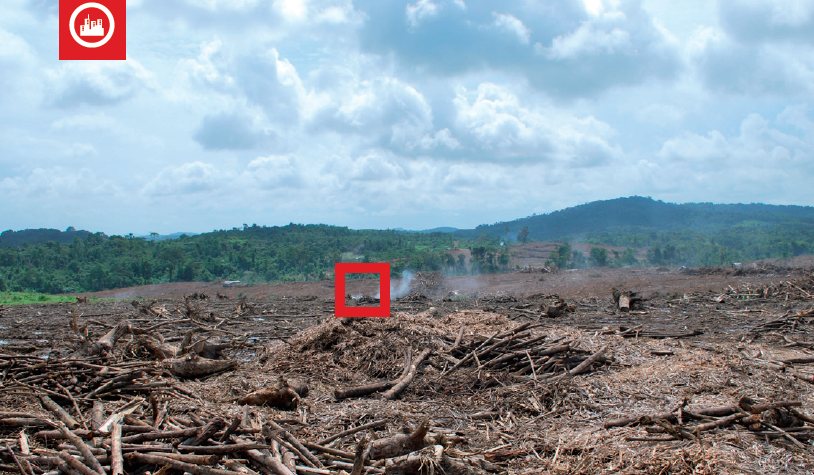
Controversy at biomass-producing company in Liberia
Several Liberian farmers and charcoal producers experience harmful effects of the operations of Buchanan Renewables, a company that produces biomass of which Swedish electricity giant Vattenfall is part owner. This is the conclusion of a new report entitled “Burning Rubber”, published today by SOMO and Green Advocates. The report describes how the company, which presents itself as a highly sustainable venture, has a negative impact on the livelihoods of a number of smallholder farmers, has not taken adequate measures to improve the energy situation in Liberia, and has a corporate structure which can be optimally used to avoid paying taxes in Liberia.
Several Liberian farmers and charcoal producers experience harmful effects of the operations of Buchanan Renewables, a company that produces biomass of which Swedish electricity giant Vattenfall is part owner. This is the conclusion of a new report entitled Burning Rubber, published today by SOMO and Green Advocates. The report describes how the company, which presents itself as a highly sustainable venture, has a negative impact on the livelihoods of a number of smallholder farmers, has not taken adequate measures to improve the energy situation in Liberia, and has a corporate structure which can be optimally used to avoid paying taxes in Liberia.
Buchanan Renewables uses old rubber trees to produce woodchips that can be combusted as biomass to fuel power plants. A portion of the wood is sourced from smallholder rubber farms, where the company also re-plants young rubber trees. Additionally, the company plans to construct a biomass-fuelled power plant to provide electricity to the capital of Monrovia. On the basis of this business model, the company has received large funding from development banks such as OPIC in the United States and MIGA, the insurance branch of the World Bank. The Swedish utility Vattenfall has a minority share in the biomass production division of the company. The headquarters of Buchanan Renewables are located at a trust office in Amsterdam.
The report shows that a number of the smallholder farmers that should be benefitting from the company’s operations are in fact worse off as a result of their relationship with the company. Smallholder farmers have expressed concern that the company has not lived up to verbal price agreements, does not conduct proper maintenance on the young rubber trees, and in several instances cut down old trees but never produced woodchips from them. These trees are left on the fields, blocking access for the smallholder farmers. “Several farmers indicate that they live in poverty as a direct result of the activities of Buchanan Renewables”, says SOMO researcher Tim Steinweg.
The biomass-fueled power plant that the company plans to construct has suffered major delays. Because of these delays, the population of Monrovia remains dependent on charcoal for much of their daily energy needs. This charcoal, often produced from the same rubber trees that Buchanan Renewables uses to produce biomass for export, has become significantly more expensive in recent years. It has also become more difficult for charcoal producers to gather the wood they need. To address these negative impacts on the energy situation in Liberia, the company signed a memorandum of understanding with the national charcoal union of Liberia. To date, however, the company has not taken any concrete steps to meet to the commitments made in this agreement.
On paper, the company’s headquarters are based in Amsterdam, although the company has no economic activities or employees in the Netherlands. The company’s complex corporate structure is designed in a way that can be optimally used to avoid paying taxes in Liberia. If the company expands its activities and becomes profitable in the coming years, there is a risk that the corporate tax payments to the Liberian government will remain minimal. “Buchanan Renewables’ corporate structure, and the possible implications for future tax revenues in Liberia, is not in line with the company’s sustainable image”, according to Tim Steinweg.
Download Press Photos(opens in new window)
Related news
-
 Additional evidence filed against Booking.com for profiting from illegal settlementsPosted in category:News
Additional evidence filed against Booking.com for profiting from illegal settlementsPosted in category:News Lydia de LeeuwPublished on:
Lydia de LeeuwPublished on: -
 The hidden human costs linked to global supply chains in ChinaPosted in category:News
The hidden human costs linked to global supply chains in ChinaPosted in category:News Joshua RosenzweigPublished on:
Joshua RosenzweigPublished on: -
 The power to extract value from the value chainPosted in category:Long read
The power to extract value from the value chainPosted in category:Long read Rodrigo FernandezPublished on:
Rodrigo FernandezPublished on:

